Are there English-speaking doctors in Chapala and Ajijic, Mexico?
Santiago Hernandez - Chapala Med
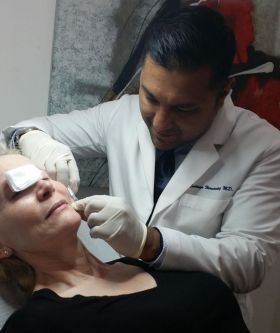 I am a doctor, having been raised in Chicago, so I am a native English speaker. I am bilingual. I am like most immigrants who immigrated to the US. I grew up speaking my native language at home (which is Spanish) and then outside or with my friends, I spoke English.
I am a doctor, having been raised in Chicago, so I am a native English speaker. I am bilingual. I am like most immigrants who immigrated to the US. I grew up speaking my native language at home (which is Spanish) and then outside or with my friends, I spoke English. There are lots of people here in Chapala and Ajijic who have a very good grasp of the English language. Most people have a grasp of about 80% fluency. Most of the doctors from the offices...
 I am a doctor, having been raised in Chicago, so I am a native English speaker. I am bilingual. I am like most immigrants who immigrated to the US. I grew up speaking my native language at home (which is Spanish) and then outside or with my friends, I spoke English.
I am a doctor, having been raised in Chicago, so I am a native English speaker. I am bilingual. I am like most immigrants who immigrated to the US. I grew up speaking my native language at home (which is Spanish) and then outside or with my friends, I spoke English. There are lots of people here in Chapala and Ajijic who have a very good grasp of the English language. Most people have a grasp of about 80% fluency. Most of the doctors from the offices located north of Chapala, in the lakeside area, have had training north of the border in some way, shape, or form. This would include a fellowship, partial residency, or going to conferences. I like to work with doctors who have continuing medical education in the US and in Canada. This is very important to me because we try to keep the same standards of care and more or less we follow the same steps and algorithms.
We have other physicians here in Mexico and in the area that have gone to South America, Europe, Spain, Germany, and other countries for their training. It’s not that they do things wrong; it’s just that they do things in a different way and it might take a little bit more getting used to. For example, a US-trained doctor may recommend certain steps and a doctor from Canada, Europe or South America may take different steps. I would like to think that all of us doctors would like to ease our patient’s suffering and improve their well-being, so the particular way we go about it is the main difference.
Relative to how well their grasp of the English language is, a good majority of the physicians here have a good grasp of the language at a conversational level. Many of them may have different technical English but may have trouble with the colloquialisms. For example, if somebody comes in and says, “Doc, geez, I just feel tuckered out!” the doctor may not know what that means or they might have to look it up.
I practiced in Chicago with Spanish-speaking communities and we would have the same cultural and language barriers up there that you would find here in Mexico, but in reverse. In my practice, the cultural and language barriers between my English-speaking patients and me are almost non-existent, whereas, other doctors have to catch up. The other doctors who may have traveled north of the border more and who watch more North American TV can relate more.
To take a reverse example, if a child were brought to a clinic in Chicago with the Spanish-speaking parents saying, “My child is empachado” (which means “plugged up in their digestive system”), a doctor, who studied high school or college Spanish would not know what that meant. Having been more exposed to the Hispanic or the Mexican population, and the rural population, I am more familiar with this kind of colloquialism.
When you come into Mexico, and you are in any profession or any job that provides service, you have to be able to learn some of the cultural barriers that are reflected in the language. For example, for something to be done at a particular time here, Mexicans have a hard time saying no and they have a hard time of providing something on time. There is always the mañana culture. They like saying “al ratito”, which means “ little later.” They find it difficult to give you a definite day for a deadline when they will deliver you service or some results. They will say, “Ya veremos” or “We’ll see…” and they can beat around the bush and put you on hold for a while with those answers. It has taken me a while to get used to. In contrast, and from my point of view, I try to provide my patients the type of service they are used to and give them straight answers. Some doctors who have been successful with the expat communities tend to focus more on that aspect of their customer service.
In general, a great majority of the doctors here have a really laid back way living their lives, which is really attractive about the Mexican culture. However, from my point of view, when you are dealing with something as important as your health, you have to get a clear answer. You must get a “yes” or a “no”, and deliver on time.
(Dr. Santiago Hernandez with a patient, Chapala, Mexico, pictured.)
Posted January 19, 2016
Jerry Smith, MD
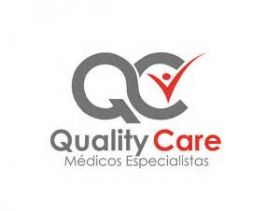 The Mexican physicians here speak perfect English and are well- educated.
The Mexican physicians here speak perfect English and are well- educated. That’s the beauty of living in the Ajijic area. The retirees may outnumber the Mexicans many of whom are maids, gardeners, service workers, business owners and mechanics. Most of them speak at least enough rudimentary English to communicate with you. Almost every Mexican who lives in Ajijic speaks or understands some English, because if they don’t,...
 The Mexican physicians here speak perfect English and are well- educated.
The Mexican physicians here speak perfect English and are well- educated. That’s the beauty of living in the Ajijic area. The retirees may outnumber the Mexicans many of whom are maids, gardeners, service workers, business owners and mechanics. Most of them speak at least enough rudimentary English to communicate with you. Almost every Mexican who lives in Ajijic speaks or understands some English, because if they don’t, they’re not going to be able to make the kind of money the English speakers make. As a result, you don’t need to speak Spanish to live here, which is both a plus and a minus.
(Logo for Quality Care Medical Specialist, Ajijic, Mexico, pictured.)
Posted June 25, 2016
Anne Dyer - Casita Montana
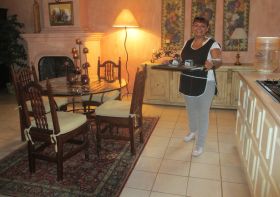 Almost all the doctors in Chapala and Ajijic are English-speaking and almost everybody in town speaks English. I don’t have a strong Spanish vocabulary even though I have been here for 29 years because everybody speaks English to me.
Almost all the doctors in Chapala and Ajijic are English-speaking and almost everybody in town speaks English. I don’t have a strong Spanish vocabulary even though I have been here for 29 years because everybody speaks English to me. I have been in the medical field all these years and everyone speaks English. All my staff, doctors, and patients are usually English-speaking. I understand Spanish but it is easier to speak English. If my helpers do not...
 Almost all the doctors in Chapala and Ajijic are English-speaking and almost everybody in town speaks English. I don’t have a strong Spanish vocabulary even though I have been here for 29 years because everybody speaks English to me.
Almost all the doctors in Chapala and Ajijic are English-speaking and almost everybody in town speaks English. I don’t have a strong Spanish vocabulary even though I have been here for 29 years because everybody speaks English to me. I have been in the medical field all these years and everyone speaks English. All my staff, doctors, and patients are usually English-speaking. I understand Spanish but it is easier to speak English. If my helpers do not know how to speak English, I send them to school so they can learn. We try to make it easy for everybody.
(English- speaking staff member at Casita Montana, Lake Chapala, Mexico, pictured.)
Posted August 11, 2016
Michael Kavanaugh - Continental Realty
 Almost all of the doctors in the Chapala – Ajijic area who deal with Americans or Canadians speak English, and there are plenty of them.
Almost all of the doctors in the Chapala – Ajijic area who deal with Americans or Canadians speak English, and there are plenty of them. Here in Ajijic there’s Dr. Leon who is very popular with Americans and Canadians. There’s a new young doctor in the Interlago Plaza who is just apparently fabulous. A lot of the older women that live here just love him. There are specialists who are here locally and there are specialists that come...
 Almost all of the doctors in the Chapala – Ajijic area who deal with Americans or Canadians speak English, and there are plenty of them.
Almost all of the doctors in the Chapala – Ajijic area who deal with Americans or Canadians speak English, and there are plenty of them. Here in Ajijic there’s Dr. Leon who is very popular with Americans and Canadians. There’s a new young doctor in the Interlago Plaza who is just apparently fabulous. A lot of the older women that live here just love him. There are specialists who are here locally and there are specialists that come down weekly. There are a couple of eye doctors and surgeons here that are here all the time and have clinics in Guadalajara where they do the surgery. It’s just fabulous.
With all these, there is no problem if you don’t speak Spanish.
(Logo for Optica Millenium, Ajijic, Mexico, pictured.)
Posted August 14, 2016
Gabriel Varela, MD - Gabriel Varela - Neurosurgeon
.png) Yes, there are English-speaking doctors in the Chapala and Ajijic areas. For example, although my English is not perfect, I can generally converse; I don’t have any problem speaking with people who don’t speak Spanish. Also, my staff speaks English.
Yes, there are English-speaking doctors in the Chapala and Ajijic areas. For example, although my English is not perfect, I can generally converse; I don’t have any problem speaking with people who don’t speak Spanish. Also, my staff speaks English. Here in this town there are many people who speak English because American people have been coming for 60 or more years to retire here. They have the Lake Chapala Society here and many of...
.png) Yes, there are English-speaking doctors in the Chapala and Ajijic areas. For example, although my English is not perfect, I can generally converse; I don’t have any problem speaking with people who don’t speak Spanish. Also, my staff speaks English.
Yes, there are English-speaking doctors in the Chapala and Ajijic areas. For example, although my English is not perfect, I can generally converse; I don’t have any problem speaking with people who don’t speak Spanish. Also, my staff speaks English. Here in this town there are many people who speak English because American people have been coming for 60 or more years to retire here. They have the Lake Chapala Society here and many of the services we have here are because of American or Canadian people. It’s not a problem for people who don’t know how to speak Spanish to live here.
(English-speaking neurosurgeon, Dr. Gabriel Varela, Ajijic, Mexico, pictured.)
Posted November 5, 2016
Andre Bellon - Bellon Insurance Agents
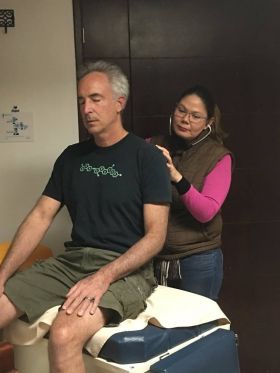 There are English-speaking doctors in Chapala and Ajijic. In fact, most of the doctors in Chapala and Ajijic speak English. The doctors in Chapala and Ajijic know that a lot of people in Chapala and Ajijic are expats and need to tell them their medical issues in English, so they need to speak and understand English.
There are English-speaking doctors in Chapala and Ajijic. In fact, most of the doctors in Chapala and Ajijic speak English. The doctors in Chapala and Ajijic know that a lot of people in Chapala and Ajijic are expats and need to tell them their medical issues in English, so they need to speak and understand English. (English-speaking Dr. Jessica Quintanilla examines Chuck Bolotin from Best Places in the World to Retire, Ajijic, Mexico,...
 There are English-speaking doctors in Chapala and Ajijic. In fact, most of the doctors in Chapala and Ajijic speak English. The doctors in Chapala and Ajijic know that a lot of people in Chapala and Ajijic are expats and need to tell them their medical issues in English, so they need to speak and understand English.
There are English-speaking doctors in Chapala and Ajijic. In fact, most of the doctors in Chapala and Ajijic speak English. The doctors in Chapala and Ajijic know that a lot of people in Chapala and Ajijic are expats and need to tell them their medical issues in English, so they need to speak and understand English. (English-speaking Dr. Jessica Quintanilla examines Chuck Bolotin from Best Places in the World to Retire, Ajijic, Mexico, pictured.)
Posted February 9, 2017
Chuck Bolotin - Best Mexico Movers
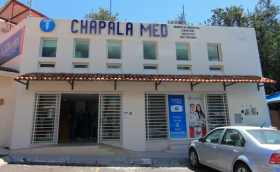 Any of the doctors that expats normally frequent in the Lake Chapala / Ajijic area will speak either passable or extremely good English. Two physicians of whom I am aware were raised in the US as American citizens and the rest either did some study in the US, went to medical school where the teaching language was English, or picked it up as a way to serve the English-speaking population in the Ajijic area.
Any of the doctors that expats normally frequent in the Lake Chapala / Ajijic area will speak either passable or extremely good English. Two physicians of whom I am aware were raised in the US as American citizens and the rest either did some study in the US, went to medical school where the teaching language was English, or picked it up as a way to serve the English-speaking population in the Ajijic area.My Spanish is rudimentary at best, and I have had no issues...
 Any of the doctors that expats normally frequent in the Lake Chapala / Ajijic area will speak either passable or extremely good English. Two physicians of whom I am aware were raised in the US as American citizens and the rest either did some study in the US, went to medical school where the teaching language was English, or picked it up as a way to serve the English-speaking population in the Ajijic area.
Any of the doctors that expats normally frequent in the Lake Chapala / Ajijic area will speak either passable or extremely good English. Two physicians of whom I am aware were raised in the US as American citizens and the rest either did some study in the US, went to medical school where the teaching language was English, or picked it up as a way to serve the English-speaking population in the Ajijic area.My Spanish is rudimentary at best, and I have had no issues communicating with my doctors and dentists here, only in English.
Interested in moving to the Ajijic / Lake Chapala area? Try Best Mexico Movers.
Posted August 4, 2018



.png)